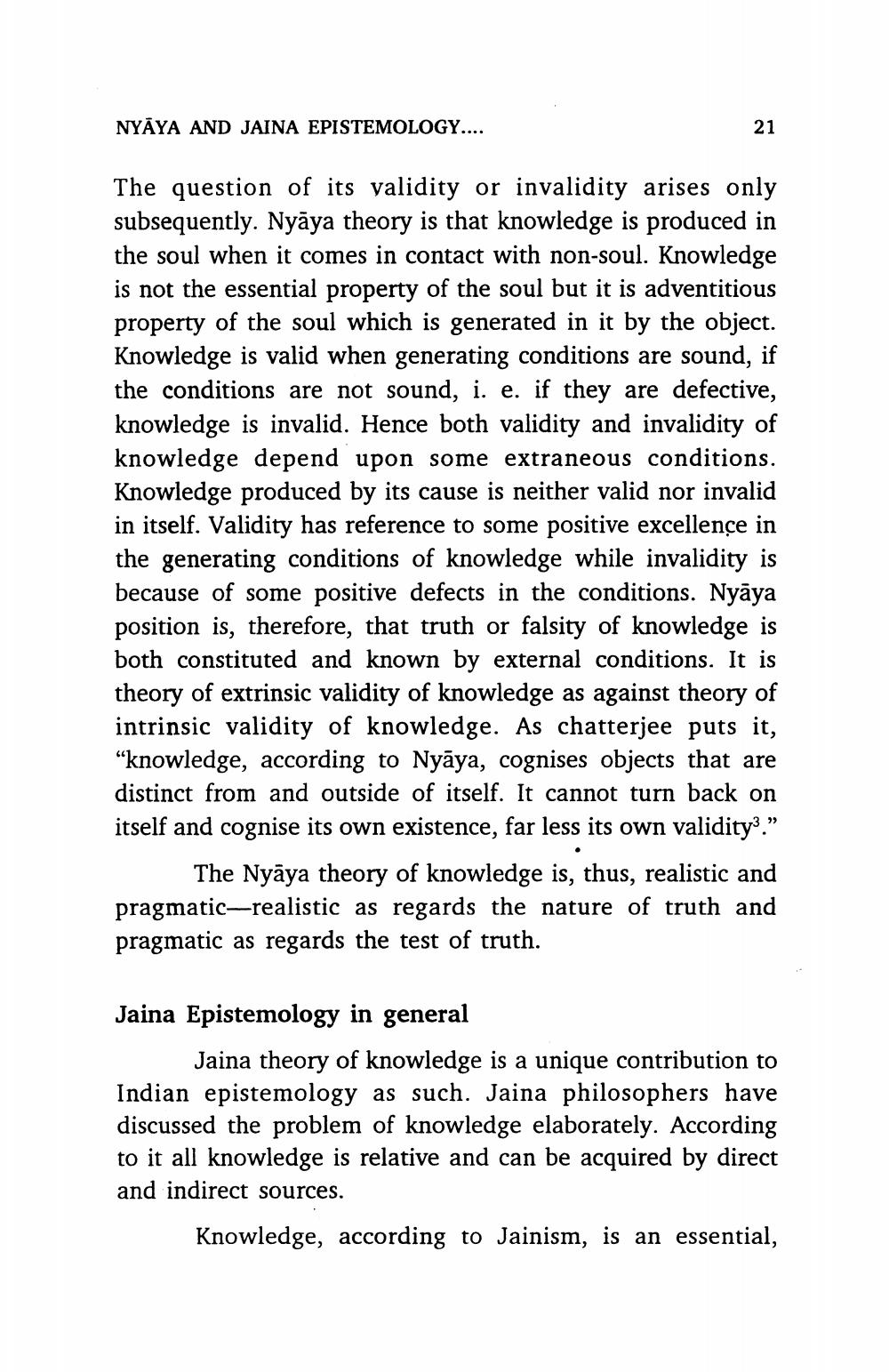________________
NYAYA AND JAINA EPISTEMOLOGY....
21
The question of its validity or invalidity arises only subsequently. Nyāya theory is that knowledge is produced in the soul when it comes in contact with non-soul. Knowledge is not the essential property of the soul but it is adventitious property of the soul which is generated in it by the object. Knowledge is valid when generating conditions are sound, if the conditions are not sound, i. e. if they are defective, knowledge is invalid. Hence both validity and invalidity of knowledge depend upon some extraneous conditions. Knowledge produced by its cause is neither valid nor invalid in itself. Validity has reference to some positive excellence in the generating conditions of knowledge while invalidity is because of some positive defects in the conditions. Nyāya position is, therefore, that truth or falsity of knowledge is both constituted and known by external conditions. It is theory of extrinsic validity of knowledge as against theory of intrinsic validity of knowledge. As chatterjee puts it, “knowledge, according to Nyāya, cognises objects that are distinct from and outside of itself. It cannot turn back on itself and cognise its own existence, far less its own validity.”
The Nyāya theory of knowledge is, thus, realistic and pragmatic-realistic as regards the nature of truth and pragmatic as regards the test of truth.
Jaina Epistemology in general
Jaina theory of knowledge is a unique contribution to Indian epistemology as such. Jaina philosophers have discussed the problem of knowledge elaborately. According to it all knowledge is relative and can be acquired by direct and indirect sources.
Knowledge, according to Jainism, is an essential,




